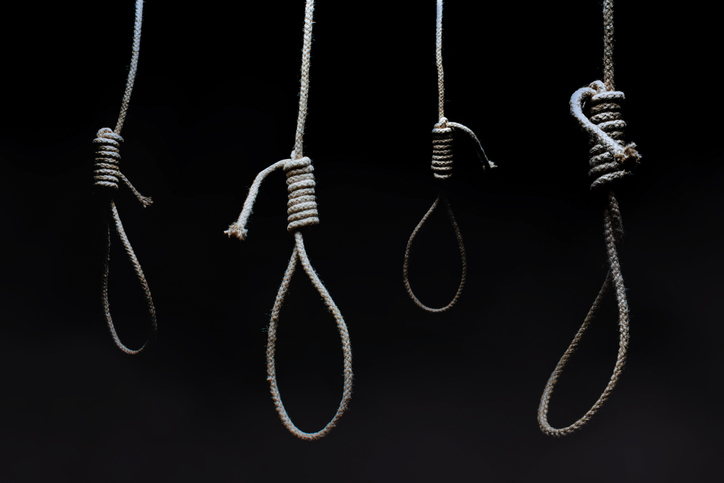
July 14, 2024
Howard Cooper’s Lynching And Legacy Before Emmett Till’s Tragedy Remembered
Now, the Maryland Lynching Memorial project honors Cooper's life, doing so annually on the anniversary of his death.
Before Emmett Till’s 1955 lynching, a Black teenager in Baltimore faced the same fate nearly a century before. However, Howard Cooper’s story remained relatively unknown until 2018.
Cooper, a 15-year-old from the Baltimore area, was accused of sexually assaulting a young white woman in 1885. After days of evading a racist mob, law enforcement found and charged him with assault and rape. While Cooper did not deny the assault, he claimed that he never raped the woman, a charge punishable by death by hanging. Despite this, an all-white jury took only one minute to convict Cooper of both crimes, as reported by The Baltimore Sun.
A potential federal appeal of his conviction, spearheaded by Rev. Dr. Harvey Johnson of Baltimore’s Union Baptist Church, led to the mob snatching Cooper from his cell in Towson Jail. In the early hours of July 13, Cooper’s body hung from a sycamore tree. He uttered his last words of “Goodbye, gentlemen.”
Where his body rests is an unmarked grave. As for the jail where he stayed, it now serves as an office building. While Till’s untimely death forced America to reckon with its racism, the tragedy of Howard Cooper stayed buried.
Now, the Maryland Lynching Memorial project honors Cooper’s life, doing so annually on the anniversary of his death. The work of this organization, part of the Equal Justice Initiative’s Community Remembrance Project, rectifies this forgotten history.
“Not only is the history not appreciated, and not known, but the connection of these legacies of lynching to the inequities we see today, and making that connection clear, is one of the reasons it’s important to do this,” said Will Schwarz, president of the statewide nonprofit, to the news outlet.
Cooper’s killing is among at least 38 lynchings in the state. Former Maryland Governor Larry Hogan issued pardons for Cooper and 34 others during a 2021 ceremony. Cooper’s name and memory are also displayed outside the former jail with a historical marker. It remains one of two dedicated to lynching victims in the state.
The annual ceremony takes place in the park across the building where Cooper was last seen alive. The memorial serves as a remembrance of lynching victims whose lives were unjustly taken due to racism, within and beyond the Maryland community.
RELATED CONTENT: Emmett Till Anti-Lynching Act